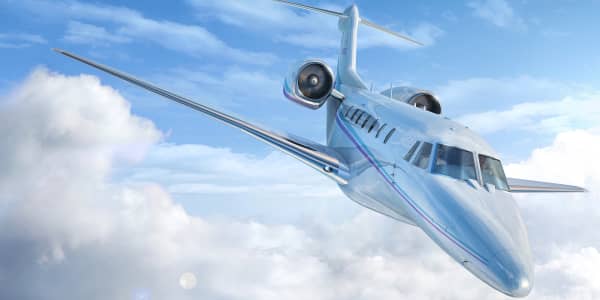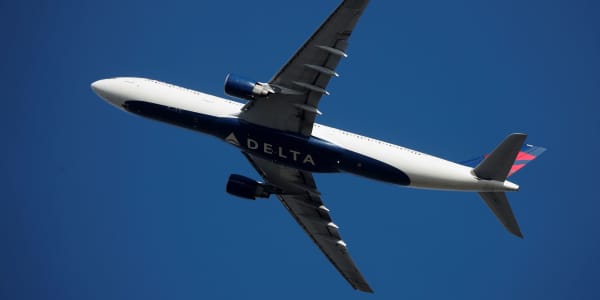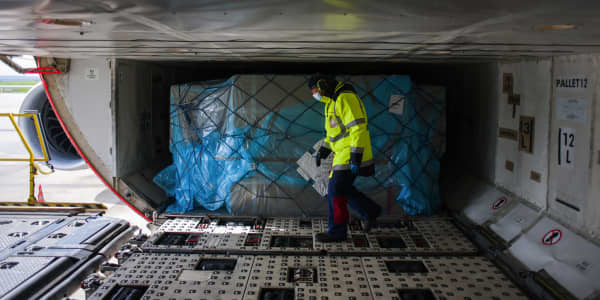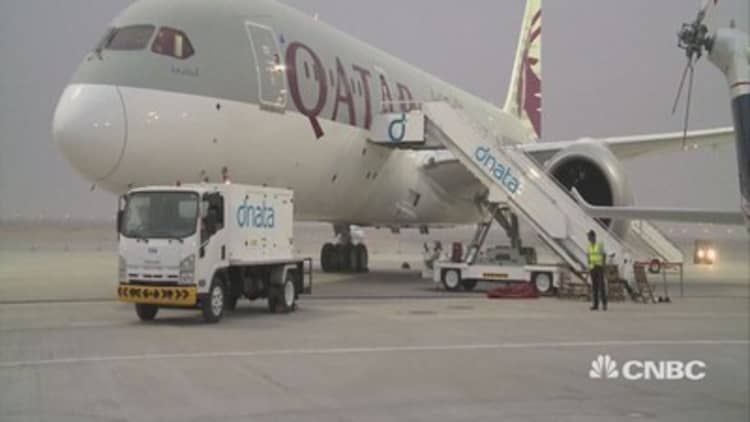
Just a decade after its inaugural flight, the outlook for the double-decker Airbus A380 now looks uncertain as airlines are increasingly looking to smaller, more fuel-efficient planes.
Orders of the super jumbo have dried up following a bumper order book at the Dubai Airshow two years ago. Its key customer, Gulf carrier Emirates is pushing for a revamped version of the jet to boost efficiency, with analysts predicting either an updated or "neo" version of the Airbus at this year's Dubai Airshow this weekend, or the quiet phasing out of the aircraft.
Part of the original attraction of the huge plane, which can seat over 800 passengers, was its cost-per-seat mile (CASM). This is a measurement used to compare the efficiency of various airlines. Given its size, and as global airports are getting increasingly busy, the A380 allows airlines to carry more passengers without having to fight for extra slots.
But as smaller, twin-engine planes have improved and are now able to cope with longer-haul flights, the cost per seat advantage is no longer as strong in the four-engined A380.
"We believe that Airbus needs to make a decision soon – either re-establish the cost per seat advantage of the A380 (probably through a neo version, perhaps with a small stretch), or risk closing the line," said UBS analyst Charles Armitage.
"The longer the delay in launching the new variant is likely to prolong the pain of the transition, as we would expect it to be even harder to sell the current variant if a neo is launched. Given that we believe Emirates is likely to be a large buyer of the A380neo, the Dubai Air Show would seem to us to be an ideal venue for the announcement," he added.
Emirates key
The European plane manufacturer is set to break even on the jumbo this year and in 2016 and 2017, but beyond 2020 its future isn't clear.
Emirates is by far the largest operator of the A380, with over 60 currently in use and a total of 140 on order, after it announced plans to purchase an additional 50 super jumbos in 2013.
Chief Executive of Emirates, Tim Clark said earlier this year that a neo version could give the airline around a 10 percent reduction in seat costs per mile, which would be enough to tempt the carrier to book another sizeable order of a new and improved version of the plane.
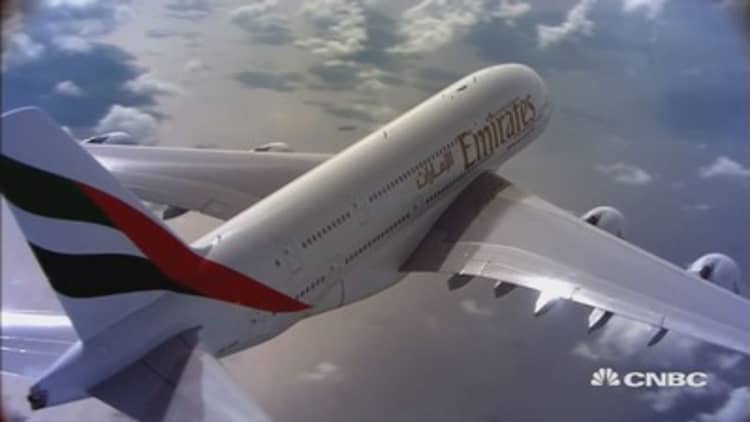
Qatar Airways, which currently operates five A380s have also said it currently can't commit to any more orders.
"Emirates has been having quite a campaign to convince Airbus to refresh its A380, to take it to the next level in terms of better payload and ranged efficiency," said John Strickland, director of air transport consulting firm JLS.
"But it is still, from Airbus' point of view, a big investment from one customer, albeit from an extremely important customer," he told CNBC.
Airbus have a range of development projects in the pipeline, including a next generation A320 in the short haul family, and an A350 and an A330, with the latter being revamped with new engines. Therefore, Strickland said Airbus has "a lot on their plate to take on additional investment at this point."
"It would be a bombshell if that came out of the airshow," he added.
Neo or die?
The development of an A380 neo is also likely to be a costly affair, with UBS estimating that Airbus group profits could be hit by around 8 percent in 2018. Nonetheless, failing the launch of a refreshed version of the plane, the future of the aircraft does not look rosy.
"Given the choice between launching the (neo) program just for one customer, and letting it die and save billions of dollars, you should let it die and save billions of dollars," said Richard Aboulafia, vice president of analysis at Teal Group.
"Since the A380 mistake was made 15 years ago, they have moved to creating aircraft that are doing a much better job. It is a question of cost, cannibalizing their own back log and watching the production line go dry while people wait for the new model. This is just a toxic brew of horror!" he told CNBC.
Airbus has said it wouldn't commit to any future redevelopment of the plane at the moment, but the company's Head of Sales, John Leahy told reporters at the Paris Air Show in June that it is currently discussing future versions of the super jumbo with a number of airlines.
"We believe that there is a significant chance that if the A380 neo is not launched, then the A380 program will die. We would expect that the terminal phases would result in production losses, which we estimate would be about $200 million in 2018, rising to $550 million in 2020 as the last few aircraft are delivered," Armitage told CNBC.





